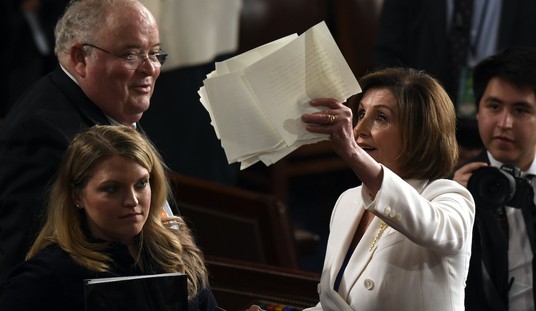Yesterday, former FBI Director James Comey admitted that he had passed his contemporaneous memos on conversations he had with Donald Trump to a friend with the intent that they be given to the New York Times. This admission poses a number of potential issues for Comey which will never be looked at in any detail because he was leaking to hurt Trump.
The first issue is the propriety of the leak in the first place. If you want the profoundly stupid defense of Comey’s actions, I’ll give you this from the editor of Politico. (As an aside, I am writing this off to sheer blind partisanship because Hounshell is smart enough to know how stupid this tweet is.)
Dear confused people: It's not a "leak" if you are a private citizen sharing unclassified recollections.
— Blake News (@blakehounshell) June 9, 2017
The documents leaked by Comey were official government records. Period. They were created by a government employee (Comey) while acting in his official capacity (FBI director) on a government-issued laptop while sitting in a government car driven by another government employee and probably in the company of a government security detail.
To ensure accuracy, I began to type it on a laptop in an FBI vehicle outside Trump Tower the moment I walked out of the meeting.
The documents are not “unclassified.” The documents, by the very fact that they recorded a conversation with the president, would have carried a ‘confidential’ classification. There is zero way it would not have been classified ‘for official use only’ as the conversation was inarguably covered by executive privilege. The memos were the property of the US government and are clearly covered under the Federal Records Act.
Jonathan Turley has his own concerns:
Besides being subject to Nondisclosure Agreements, Comey falls under federal laws governing the disclosure of classified and nonclassified information. Assuming that the memos were not classified (though it seems odd that it would not be classified even on the confidential level), there is 18 U.S.C. § 641 which makes it a crime to steal, sell, or convey “any record, voucher, money, or thing of value of the United States or of any department or agency thereof.”
There are also ethical and departmental rules against the use of material to damage a former represented person or individual or firm related to prior representation. The FBI website states:
Dissemination of FBI information is made strictly in accordance with provisions of the Privacy Act; Title 5, United States Code, Section 552a; FBI policy and procedures regarding discretionary release of information in accordance with the Privacy Act; and other applicable federal orders and directives.”
…
I find Comey’s admission to be deeply troubling from a professional and ethical standpoint. Would Director Comey have approved such a rule for FBI agents? Thus, an agent can prepare a memo during office hours on an FBI computer about a meeting related to his service . . . but leak that memo to the media. The Justice Department has long defined what constitutes government documents broadly. It is not clear if Comey had the documents reviewed for classification at the confidential level or confirmed that they would be treated as entirely private property. What is clear is that he did not clear the release of the memos with anyone in the government.
Ironically, there is very little difference, other than magnitude, between Comey’s retaining these agency records under his personal control than Hillary Clinton doing the same with her emails.
The second reason is the justification that Comey gives of using the leak to ensure that a special counsel was appointed. This is a problematic claim. Again from Turley:
Comey’s statement of a good motivation does not negate the concerns over his chosen means of a leak. Moreover, the timing of the leak most clearly benefited Comey not the cause of a Special Counsel. It was clear at that time that a Special Counsel was likely. More importantly, Comey clearly understood that these memos would be sought. That leads inevitably to the question of both motivation as well as means.
I take this as just being more of Comey’s self-fluffery. He is the only honest man in the Republic. The people are idiots. His colleagues and the Congress are a mixture of knaves and poltroons. If he doesn’t act, the whole nation goes down the crapper. Given other Comey revelations yesterday that Flynn is not involved in the Russia probe and the leaked information on contacts between Trump aides and Russia is “mostly wrong,” one really has to question his motive for wanting a special counsel… other than for the sake of score settling.
Making this matter more unclear is that Comey claimed yesterday that he leaked the memos in response to Trump tweets when the record shows information in those memos were in print before the date to the tweets. Were there other leakers of the same information? Or is Comey simply shifting dates for justification? Because we know he will do that.
Bottom line. Nothing is going to happen to Comey. He’s going to get his high-seven-figure book advance and a Lifetime movie deal out of it. But what is obvious is that the leaks by Comey had as much or more to do with him punishing Trump as they did with any concern for the public’s right to know.














Join the conversation as a VIP Member